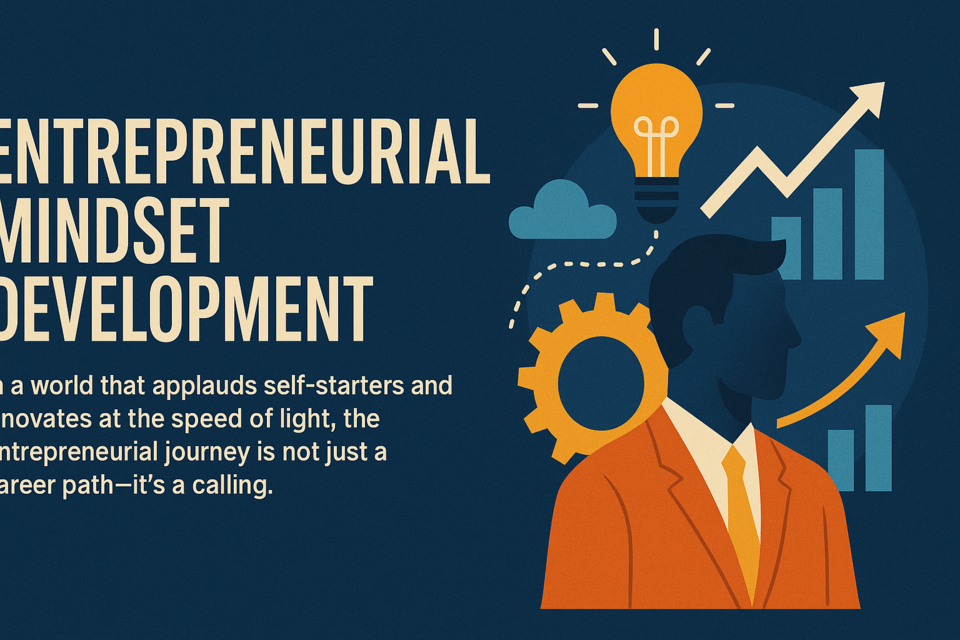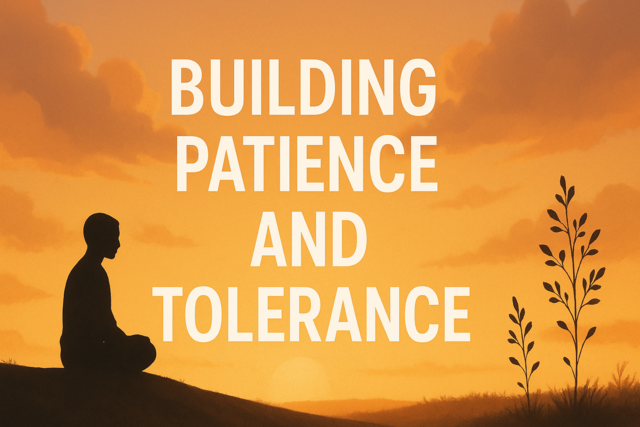Online Class: Family Dynamics and Trauma — Unraveling the Impact on Relationships

no certificate
with CEU Certificate*
-
15Lessons
-
23Exams &
Assignments -
5Hours
average time -
0.5CEUs
Course Description
In every family, there lies a tapestry woven from countless interactions, experiences, and emotions--a tapestry in which vibrant colors of joy may intertwine with darker threads of conflict and pain. Imagine if you could dive deep into this rich landscape, unravel the complexities, and transform these familial patterns with newfound understanding and tools. "Family Dynamics and Trauma: Unraveling the Impact on Relationships" is not just a course; it's your gateway to revealing the unseen currents that shape relationships, healing the wounds that linger beneath the surface, and forging stronger, more resilient family bonds.
From the very first moment you step into this enlightening journey, you'll be immersed in the world of family systems--a dynamic environment where each member contributes to the greater whole. This course invites you to explore the foundational theories that unpack how families operate, setting the stage for profound transformations in your own life as well as those around you. You'll quickly learn that you are not just an observer; you're an integral part of this complex web, empowered to influence positive change.
Embark on an adventure through the insights of Attachment Theory, uncovering how early familial bonds impact relationships throughout one's lifetime. Picture unraveling hidden narratives and replacing them with healthier patterns that promote love and understanding. With these insights, you will witness changes that ripple through generations, as you decode the influence of intergenerational trauma, understanding how past wounds echo in the present. You will feel a sense of purpose, armed with the knowledge that your actions today can heal yesterday's pains and sculpt a brighter tomorrow.
Communication is the lifeblood of any relationship, yet so few understand its nuanced power in shaping family dynamics. As you navigate this course, you'll unlock the secrets to effective communication, equipping yourself to mediate conflicts and foster an environment of openness and trust. You'll learn to see invisible lines of influence, gain mastery over the art of setting boundaries, and create safe spaces where every family member is respected, heard, and valued.
The challenges of substance abuse, mental illness, and other trauma-related issues often lurk unseen, eroding family cohesion. But fear not, for you will discover strategies to identify and address these issues with empathy and skill. Your journey in this course will introduce you to vital, trauma-informed practices that not only highlight resilience but offer concrete methods for supporting each family member's unique path to healing.
Imagine the power of gleaning wisdom from diverse cultural perspectives on family dynamics, enriching your own understanding of how different backgrounds and experiences influence trauma perception and family interactions. You'll appreciate the rich tapestry of global family dynamics, gaining insights that broaden your capacity for empathy and action.
As you reach the culmination of this transformative experience, therapeutic approaches come to life. You are not only learning about healing family wounds but actively equipping yourself with the tools necessary to cultivate lasting recovery and resilience. Visualize a future where family bonds, once strained by adversity, are regenerated into pillars of support and unity--where love is the guiding force that transcends all difficulties.
In taking this course, you are not merely stepping into a classroom; you are embarking on a path of self-discovery and transformation. It's a call to action for those who desire profound personal growth and the skills to mend and enhance family relationships. This is more than education; it's an investment in your family's legacy--a legacy of understanding, healing, and enduring connections. Join us in "Family Dynamics and Trauma: Unraveling the Impact on Relationships." Let this be the catalyst that sparks a lifetime of positive change for you and yours. Welcome to the beginning of a journey that can change everything.
- Completely Online
- Self-Paced
- 6 Months to Complete
- 24/7 Availability
- Start Anytime
- PC & Mac Compatible
- Android & iOS Friendly
- Accredited CEUs

Course Lessons
Lesson 1. Bowen's Family Systems Theory: A Guide to Emotional Units
Dr. Murray Bowen's Family Systems Theory revolutionizes relational understanding by viewing families as emotionally interconnected systems rather than loose collections of individuals. This systemic approach, featuring key concepts like triangulation and family projection, illuminates how familial interactions sustain or disrupt emotional equilibrium.Lesson 2. Exploring the Evolution of Attachment Theory: Understanding Bonds Through Trauma and Growth
Attachment theory, as developed by psychologists like Bowlby and Ainsworth, underscores how early caregiver-child interactions set the stage for lifelong attachment patterns. Empirical studies have shown that secure or insecure attachments significantly influence adult relational styles, with implications for therapy and understanding trauma recovery.Lesson 3. Recognizing Trauma's Mark on Family Dynamics
Familial roles often shift due to trauma, such as an older sibling assuming caregiver responsibilities, which can strengthen or burden relationships. Understanding these dynamics requires considering cultural, social, and psychological factors in trauma's influence on family interactions.Lesson 4. Exploring Past Hurts: The Lasting Impact of Trauma Across Generations
Personal boundaries and professionalism are vital in peer support roles, balancing empathy while preventing emotional burnout and maintaining an effective, respectful recovery environment. By adhering to confidentiality and fostering self-directed healing, peer supporters enhance trust and resilience, crucial for sustainable trauma recovery.Lesson 5. Fostering Connection: Communication's Role in Family Relationships
Familial communication dynamics, shaped by diverse cultural norms, impact relationship quality, with awareness of verbal and non-verbal styles proving essential for reducing conflict and enhancing connections. A focus on emotional expression, gender roles, and conflict management offers tools to strengthen family bonds and understanding across generations.Lesson 6. Communication's Role in Family Harmony: From Friction to Unity
Trauma can significantly affect family communication, often leading to avoidance and misunderstanding, but trauma-informed approaches and therapeutic interventions offer pathways to resilience and connection.Lesson 7. Family Boundaries: A Core Pillar of Healthy Relationships
Personal boundaries serve as crucial frameworks in family dynamics, promoting individuality and mutual respect while enhancing emotional safety. The lesson underscores the significance of recognizing diverse boundary types, encouraging continuous communication and adjustment to support each family member's growth and ensure harmonious relationships.Lesson 8. Substance Abuse and Family: Shattered Trust, Broken Bonds, and Paths to Recovery
Addressing substance abuse within families requires collective healing and open communication, involving therapies that reconstruct trust and address misconceptions. Community and educational support structures play vital roles in prevention and recovery, empowering families to move beyond judgment and stigma towards empathy and understanding.Lesson 9. Parenting and Child Development: The Biological Underpinnings
The link between childhood stress and lifelong health challenges is deeply rooted in the neuroendocrine response, specifically the HPA axis and cortisol production. Therapeutic approaches combining biological insight with mindfulness and nutritional interventions offer a chance to modify these stress-imposed trajectories, transforming potential adverse outcomes into resilience.Lesson 10. Healing Family Connections: Trauma-Informed Parenting for Growth
Grasping the pervasive nature of trauma within family systems unearths its intricate influence on domestic roles, communication, and relationships, necessitating a comprehensive approach to healing that includes holistic interventions like family therapy and cultural engagement. Fostering resilience through open dialogue and empathetic understanding empowers families to transform trauma-induced challenges into opportunities for strengthened bonds and renewed unity.Lesson 11. Exploring the Depth of Sibling Dynamics: Rivalries, Bonds, and Traumatic Impacts
Sibling rivalry is a reflection of inherent desires for attention and approval within family structures, often leading to profound emotional impacts. Navigating these dynamics with strategic parenting and therapeutic interventions can lead to healthier family relationships and emotional well-being.Lesson 12. Exploring Family Dynamics Through Cultural Lenses
Lesson Summary 3: The cultural interpretation of family roles and structures profoundly impacts how they function during adversity, with collectivist societies often relying on extended family networks for resilience. This contrasts with Western nuclear family models, which prioritize independence but may lack collective support during crises.Lesson 13. Navigating Family Dynamics Amidst Mental Illness and Trauma: Strategies for Support and Growth
Mental illnesses like anxiety and depression reshape family interactions, often resulting in role reversals and hindered emotional bonds. Through active listening and empathetic communication, family members can maintain healthy relationships while navigating these complex dynamics.Lesson 14. Connecting the Past with the Present: A Deep Dive into Historical Influences on Family Relationships
The shadows of past traumas, including wars and societal shifts, frequently influence present relationships, embedding subconscious fears and behaviors. Exploring and addressing these can break cycles of dysfunction, empowering families to foster mutual understanding and supportive roles.Lesson 15. Understanding Trauma's Impact on Family Dynamics
Understanding trauma's impact on families reveals how events like abuse or natural disasters can alter relationships and communication patterns. By fostering resilience through open dialogue and professional guidance, families can rebuild stronger, supportive bonds despite these challenges.
Learning Outcomes
- Analyze the impact of Family Systems Theory on understanding intergenerational trauma and its role in shaping family roles and relationships.
- Describe the foundational principles of Family Systems Theory, including concepts such as differentiation of self and triangulation, to illustrate complex family dynamics.
- Describe the evolution of attachment theory and its applications in therapeutic models for family dynamics and trauma resolution.
- Define distinct attachment styles and predict their possible influence on adult relational patterns and psychological outcomes.
- Demonstrate an understanding of trauma's impact on familial communication by explaining specific examples of communication breakdowns and proposing strategies for improvement.
- Identify common behavioral and emotional indicators of trauma in family members that disrupt family dynamics.
- Identify therapeutic approaches and community practices that can help individuals and families overcome the cycle of intergenerational trauma, demonstrating their effectiveness through evidence-based examples.
- Describe the mechanisms through which historical traumas like colonialism and slavery perpetuate across generations, using real-life examples.
- Analyze the impact of gender roles and conflict management styles on family communication to develop strategies for promoting egalitarian interactions and effective resolution of disagreements within family units.
- Demonstrate understanding of cultural differences in family communication styles by identifying specific verbal and non-verbal cues used in diverse cultural settings to enhance family dynamics.
- Demonstrate effective conflict resolution strategies in family interactions by analyzing communication patterns and identifying areas for improvement.
- Recognize and describe the impact of communication patterns on family cohesion and conflict resolution.
- Demonstrate mastery of lesson content at levels of 70% or higher.
Additional Course Information

- Document Your Lifelong Learning Achievements
- Earn an Official Certificate Documenting Course Hours and CEUs
- Verify Your Certificate with a Unique Serial Number Online
- View and Share Your Certificate Online or Download/Print as PDF
- Display Your Certificate on Your Resume and Promote Your Achievements Using Social Media

Choose Your Subscription Plan
No Certificate / No CEUs
This course only
| Includes certificate | X |
| Includes CEUs | X |
| Self-paced |

|
| Instructor support |

|
| Time to complete | 6 months |
| No. of courses | 1 course |
Certificate & CEUs
This course only
| Includes certificate |

|
| Includes CEUs |

|
| Self-paced |

|
| Instructor support |

|
| Time to complete | 6 months |
| No. of courses | 1 course |
Certificates & CEUs
Includes all 600+ courses
| Includes certificate |

|
| Includes CEUs |

|
| Self-paced |

|
| Instructor support |

|
| Time to complete | 12 Months |
| No. of courses | 600+ |
Certificates & CEUs
Includes all 600+ courses
| Includes certificate |

|
| Includes CEUs |

|
| Self-paced |

|
| Instructor support |

|
| Time to complete | 24 Months |
| No. of courses | 600+ |
Related Courses
-
 5 hours
0.5 CEUs
Personal Hygiene and Grooming Essentials
+ More Info
5 hours
0.5 CEUs
Personal Hygiene and Grooming Essentials
+ More Info
-
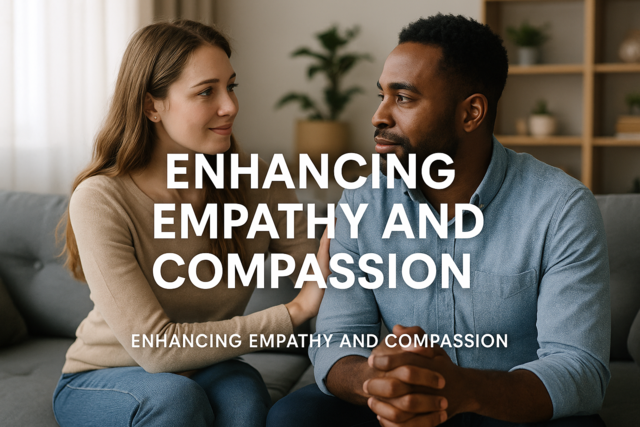 7 hours
0.7 CEUs
Enhancing Empathy and Compassion
+ More Info
7 hours
0.7 CEUs
Enhancing Empathy and Compassion
+ More Info
-
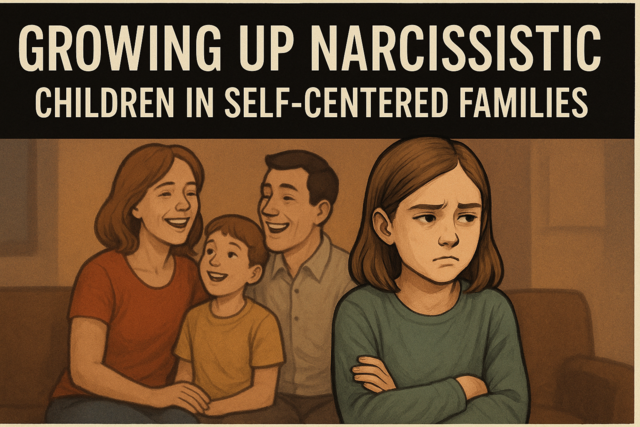 3 hours
0.3 CEUs
Growing Up Narcissistic: Children in Self-Centered Families
+ More Info
3 hours
0.3 CEUs
Growing Up Narcissistic: Children in Self-Centered Families
+ More Info
-
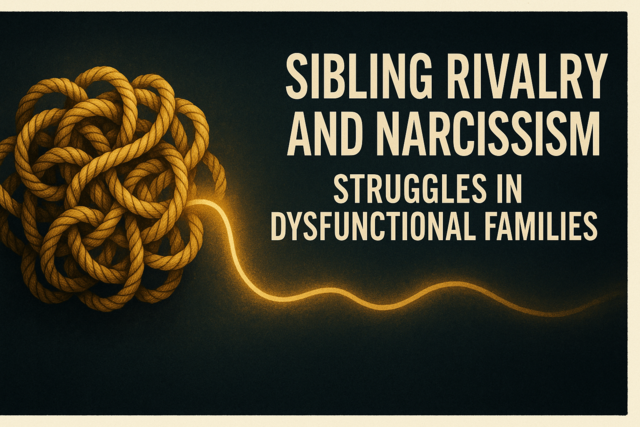 6 hours
0.6 CEUs
Sibling Rivalry and Narcissism: Struggles in Dysfunctional Families
+ More Info
6 hours
0.6 CEUs
Sibling Rivalry and Narcissism: Struggles in Dysfunctional Families
+ More Info
-
 6 hours
0.6 CEUs
Basic Gardening and Plant Care
+ More Info
6 hours
0.6 CEUs
Basic Gardening and Plant Care
+ More Info
-
 5 hours
0.5 CEUs
Developing a Growth Mindset
+ More Info
5 hours
0.5 CEUs
Developing a Growth Mindset
+ More Info
-
 3 hours
0.3 CEUs
Career Planning and Development
+ More Info
3 hours
0.3 CEUs
Career Planning and Development
+ More Info
-
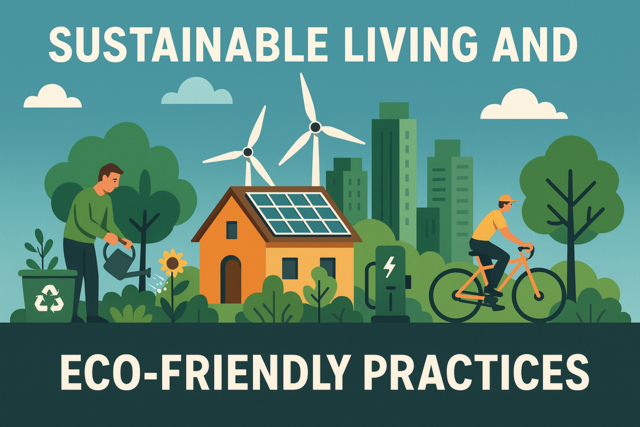 7 hours
0.7 CEUs
Sustainable Living and Eco-Friendly Practices
+ More Info
7 hours
0.7 CEUs
Sustainable Living and Eco-Friendly Practices
+ More Info
-
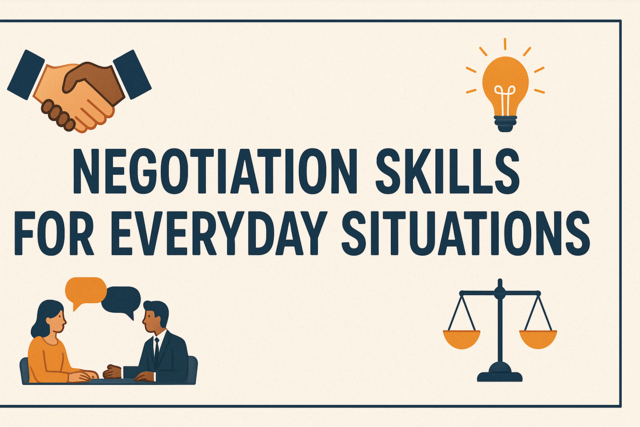 3 hours
0.3 CEUs
Negotiation Skills for Everyday Situations
+ More Info
3 hours
0.3 CEUs
Negotiation Skills for Everyday Situations
+ More Info
-
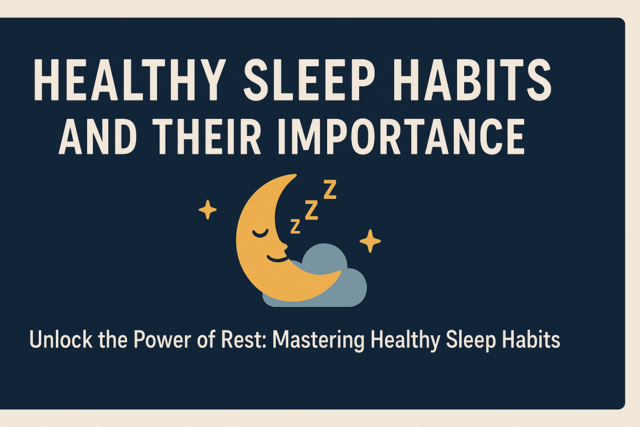 7 hours
0.7 CEUs
Healthy Sleep Habits and Their Importance
+ More Info
7 hours
0.7 CEUs
Healthy Sleep Habits and Their Importance
+ More Info
-
 4 hours
0.4 CEUs
Emergency Preparedness and Survival Skills
+ More Info
4 hours
0.4 CEUs
Emergency Preparedness and Survival Skills
+ More Info
-
 7 hours
0.7 CEUs
Travel Planning and Safety Skills
+ More Info
7 hours
0.7 CEUs
Travel Planning and Safety Skills
+ More Info
-
 5 hours
0.5 CEUs
Self-Discipline and Motivation Strategies
+ More Info
5 hours
0.5 CEUs
Self-Discipline and Motivation Strategies
+ More Info
-
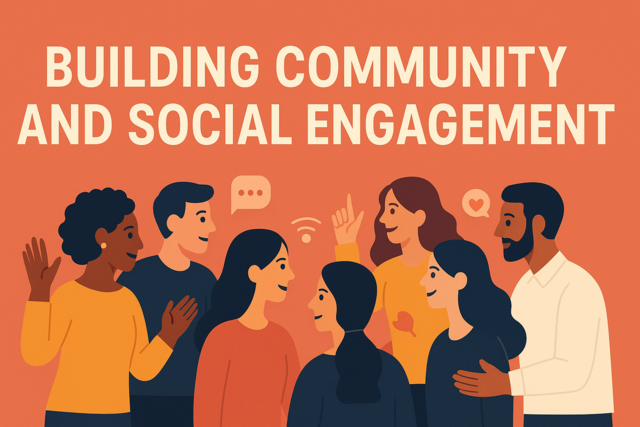 7 hours
0.7 CEUs
Building Community and Social Engagement
+ More Info
7 hours
0.7 CEUs
Building Community and Social Engagement
+ More Info
-
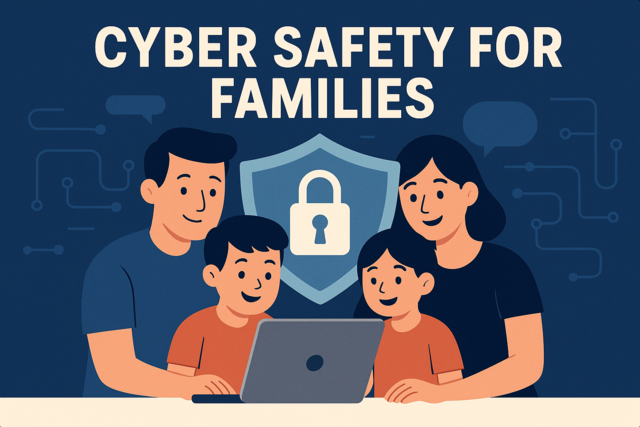 5 hours
0.5 CEUs
Cyber Safety for Families
+ More Info
5 hours
0.5 CEUs
Cyber Safety for Families
+ More Info
-
 6 hours
0.6 CEUs
Project Management for Personal Projects
+ More Info
6 hours
0.6 CEUs
Project Management for Personal Projects
+ More Info
-
 6 hours
0.6 CEUs
Healing from Narcissism: Paths to Recovery and Healthy Dynamics
+ More Info
6 hours
0.6 CEUs
Healing from Narcissism: Paths to Recovery and Healthy Dynamics
+ More Info
-
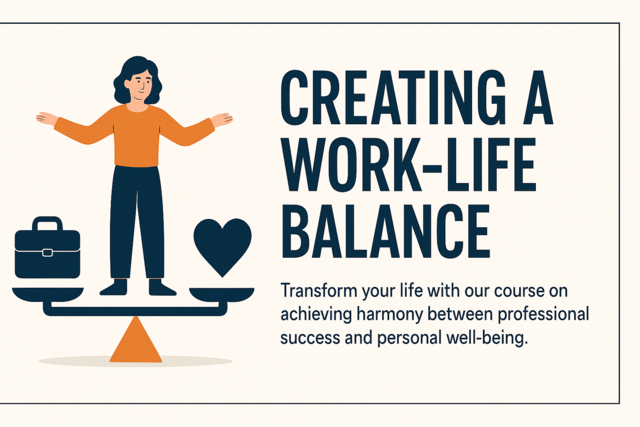 6 hours
0.6 CEUs
Creating a Work-Life Balance
+ More Info
6 hours
0.6 CEUs
Creating a Work-Life Balance
+ More Info
-
 4 hours
0.4 CEUs
Basic Household Maintenance Skills
+ More Info
4 hours
0.4 CEUs
Basic Household Maintenance Skills
+ More Info
-
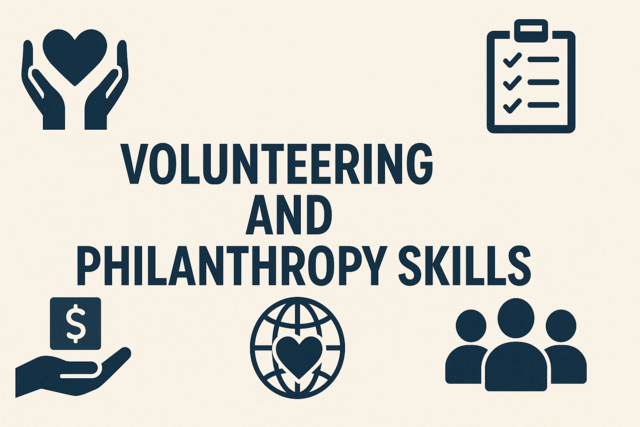 7 hours
0.7 CEUs
Volunteering and Philanthropy Skills
+ More Info
7 hours
0.7 CEUs
Volunteering and Philanthropy Skills
+ More Info
-
 4 hours
0.4 CEUs
Narcissistic Loops: Breaking the Cycle of Self-Absorption
+ More Info
4 hours
0.4 CEUs
Narcissistic Loops: Breaking the Cycle of Self-Absorption
+ More Info
-
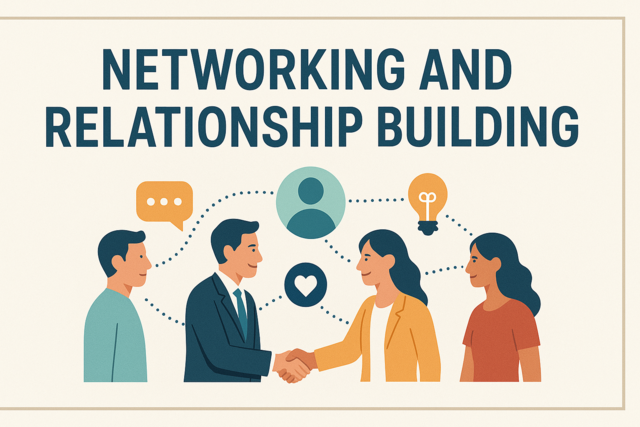 3 hours
0.3 CEUs
Networking and Relationship Building
+ More Info
3 hours
0.3 CEUs
Networking and Relationship Building
+ More Info
-
 6 hours
0.6 CEUs
Digital Literacy and Security
+ More Info
6 hours
0.6 CEUs
Digital Literacy and Security
+ More Info
-
 4 hours
0.4 CEUs
Home Organization and Decluttering Techniques
+ More Info
4 hours
0.4 CEUs
Home Organization and Decluttering Techniques
+ More Info
-
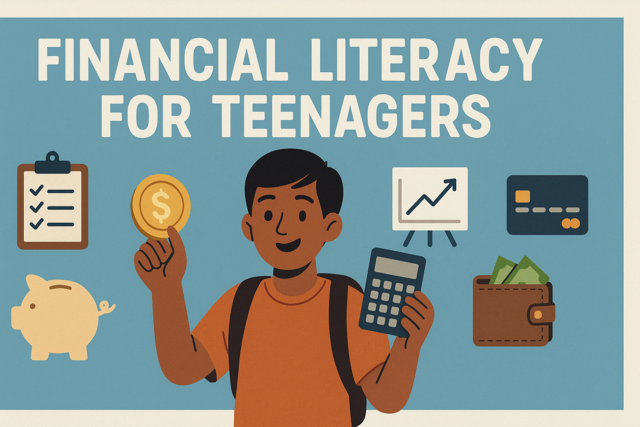 5 hours
0.5 CEUs
Financial Literacy for Teenagers
+ More Info
5 hours
0.5 CEUs
Financial Literacy for Teenagers
+ More Info
-
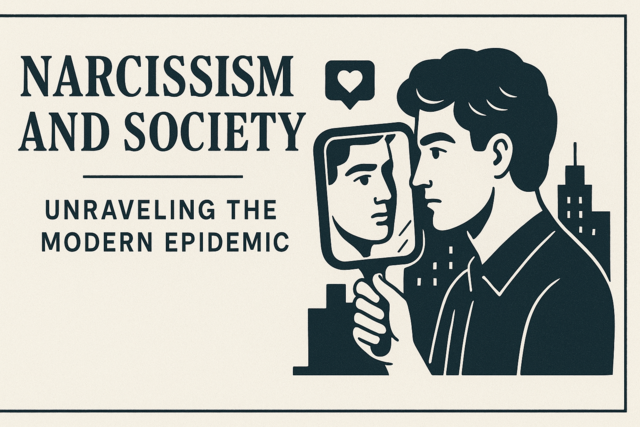 6 hours
0.6 CEUs
Narcissism and Society: Unraveling the Modern Epidemic
+ More Info
6 hours
0.6 CEUs
Narcissism and Society: Unraveling the Modern Epidemic
+ More Info
-
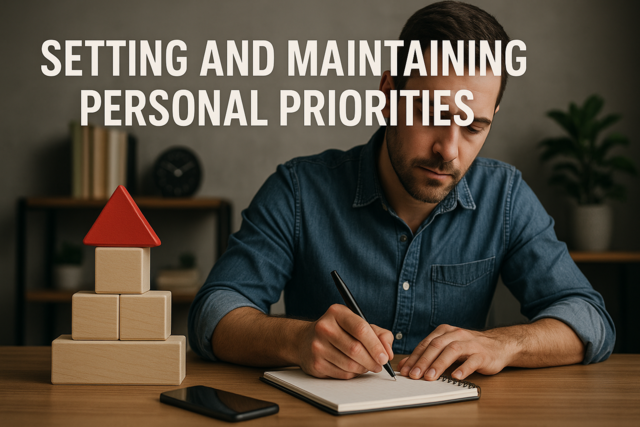 5 hours
0.5 CEUs
Setting and Maintaining Personal Priorities
+ More Info
5 hours
0.5 CEUs
Setting and Maintaining Personal Priorities
+ More Info


